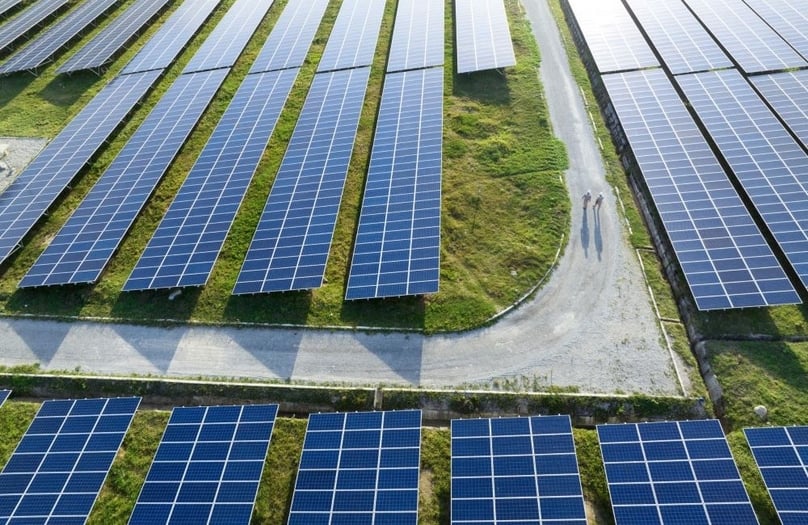Deutsche Bank throws weight behind Vietnam's green energy transition
Deutsche Bank joined a working group set up by the Glasgow Financial Alliance for Net Zero in December 2022 to support capital mobilization for the Vietnam Just Energy Transition Partnership. Huynh Buu Quang, Deutsche Bank chief country officer in Vietnam, talks with The Investor about the bank's green finance.
Deutsche Bank has just announced a $15 million green loan for the second Pepperl+Fuchs factory in Vietnam to extend the German sensor producer’s global sustainability commitments to its operations in Asia. What are the Deutsche Bank requirements for a green loan provided to an enterprise?
As part of our broader company sustainability strategy, we have established a sustainable finance framework. Our goal is to ensure that our clients have access to financing that helps them pursue the necessary transition to an environmentally sustainable future and our commitment and beliefs have been further reinforced with this framework.
The purpose of the sustainable finance framework, which may be updated from time to time, is to have a single robust methodology in place for the future issuance of ‘use-of-proceeds’-based green financing instruments, including loans.
Generally, the framework is aligned with ICMA Green Bond Principles, or GBP, which are a set of voluntary guidelines that recommend transparency and disclosure and promote integrity in the development of the green financing market. The framework consists of the following components: use of proceeds, the process for project evaluation and selection, management of proceeds, reporting and external review.
In addition to Pepperl+Fuchs, what other companies in Vietnam qualify for Deutsche Bank’s green finance standards? What is the maximum size of a Deutsche Bank green loan for an enterprise in Vietnam?
I can’t talk about this due to client confidentiality reasons.
Upon providing the green loan for Pepperl+Fuchs, you said: “Vietnam is playing an increasingly prevalent role in global manufacturing supply chains.” What are your bank’s plans to better catch these opportunities?
We actively work with our clients to promote Vietnam as an attractive investment destination. We work hard to anticipate their investment plans so that when they come to us, we have everything set up for them as far as their financial needs are concerned. We also help our clients with cross-border activities that require trade finance and foreign currency hedging. In addition, we also work with clients to provide competitive financing to their local suppliers.
Vietnam is seeking to reach its carbon neutrality target by 2050 by promoting clean energy and renewable energy development, as well as green production. How is Deutsche Bank striving to support these ambitious goals?
Late last year, to help Vietnam’s ambitious goals, Deutsche Bank joined the GFANZ Working Group, which supports Vietnam's Just Energy Transition Partnership. The GFANZ Working Group supports this JETP’s vision to increase renewable energy, phase out fossil fuels faster and invest in transition-aligned jobs and industries of the future.
In addition, we are proud to say that we achieved climate neutrality in our business operations in 2012.

BIM Energy Holding Corporation is one of the top renewable platforms in Vietnam with gross operation capacity of more than 800 MW. Photo courtesy of BIM Group.
The Glasgow Financial Alliance for Net Zero (GFANZ) is the world’s largest coalition of financial institutions with ambitious science-based commitments to the net-zero transition. GFANZ established in December 2022 a working group of net-zero-committed financial institutions.
The initial working group members are Bank of America, Citi, Deutsche Bank, HSBC, Macquarie, Mizuho Financial Group, MUFG, Prudential Plc, Shinhan Financial Group, SMBC Group, and Standard Chartered, and they have been working with partners in support of the Vietnam Just Energy Transition Partnership by identifying barriers to sourcing the necessary private investment, advocating for the reforms necessary to address those barriers, and identifying approaches that could help crowd in private finance at scale.




